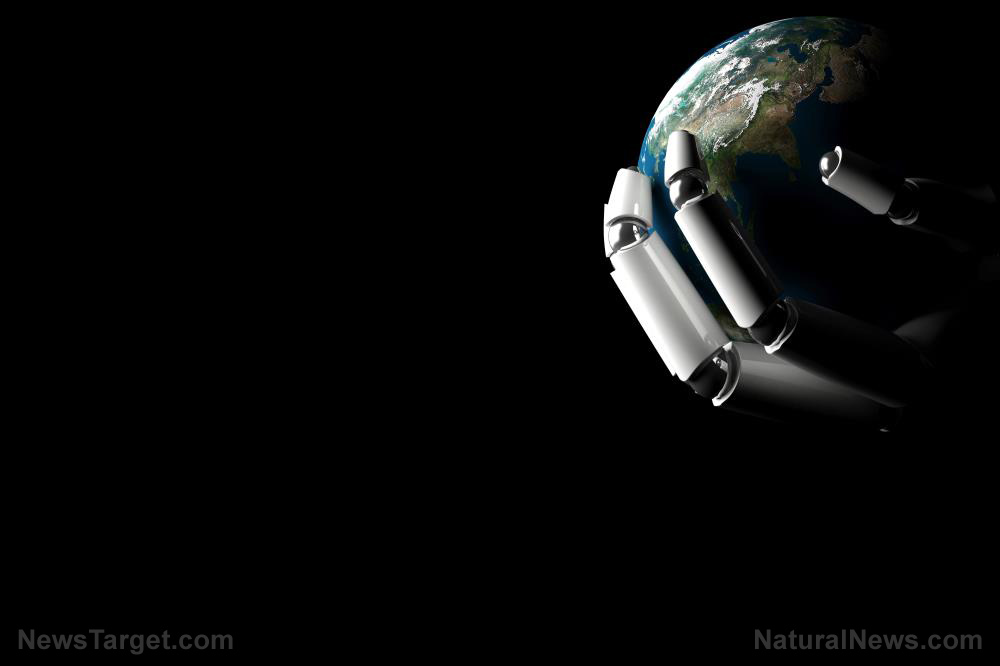 Parler
Parler Gab
Gab
- Mike Adams envisions decentralized AI as a catalyst for American innovation and creativity, fostering a more democratic tech landscape away from corporate and government control.
- Adams predicts decentralized AI will drive economic transformation, reducing costs of cognitive tasks and making services like medical consultations more accessible, but may also lead to job obsolescence.
- He advocates for a "DOGE dividend" as a universal basic income to mitigate social unrest due to job displacement by AI, which could replace up to 50% of office jobs in five years.
- Politically, Adams sees the Trump administration reversing policies to isolate China economically and align with Russia, aiming to reestablish dollar hegemony and strategic advantage.
- Optimistic about the long-term benefits, Adams acknowledges the short-term challenges, including debt, conflict, and navigating international relations, as part of the transition to a new era of abundance and innovation.
Decentralized AI: A New Frontier for Innovation
Adams believes that by decentralizing AI, the United States can foster a new era of innovation and creativity. He emphasizes that decentralized AI, unlike centralized models, allows for faster and more diverse development. This approach can spur grassroots innovation, leading to breakthroughs in various fields, from healthcare to manufacturing. "Decentralized AI empowers individuals and small teams to contribute to the technological landscape without being stifled by corporate or governmental control," Adams explained. He pointed to the rise of open-source AI models, which can be fine-tuned by anyone with the right skills and resources, as a prime example of this democratization of technology.The Road to Abundance: Economic and Technological Revolution
Adams envisions a future where decentralized AI not only drives technological advances but also transforms the economic landscape. He sees AI as a tool that can significantly reduce the cost of cognitive tasks, making once-expensive services like medical consultations and legal advice accessible and affordable to the masses. However, this shift is not without its pain points. Adams warns that the transition will be marked by significant disruptions, including the obsolescence of many traditional jobs. "We're on the brink of a major shift where AI can replace up to 50% of office jobs within the next five years," he noted. This transition will necessitate a universal basic income (UBI), which he refers to as the "DOGE dividend." The aim is to prevent social unrest and allow people to adapt to the new economic reality.The Political and Global Implications
Adams also touched on the broader political and global implications of this technological shift. He believes that the Trump administration is actively working to reverse the previous administration's policies, particularly those related to China. Trump's strategy involves isolating China economically and aligning with Russia to peel it away from Beijing's influence. This realignment, Adams argues, is crucial for reestablishing dollar hegemony in world trade. "Trump is working to make allies out of Russia and is likely to lift sanctions against Russia in a bid to isolate China," Adams stated. He sees this as a strategic move to strengthen the U.S. position in a multipolar world, where nations like China, Russia, and India are emerging as significant players.The Pain of Transition
While Adams is optimistic about the long-term benefits of this technological and economic revolution, he is realistic about the short-term pain. "We're going to think we're drowning under debt and conflict, but there's a golden age ahead of us," he proclaimed. The road to this future, however, will be fraught with challenges, including potential backlash from the deep state and the need to navigate complex international relations.Conclusion
Mike Adams' vision of a decentralized AI-driven future under the Trump administration is both ambitious and contentious. While it promises a new era of innovation and abundance, it also highlights the significant challenges that lie ahead. The success of this vision will depend on the ability of the U.S. to adapt, innovate, and navigate the complex political and economic landscape of the 21st century. As Adams put it, "The future will not resemble the past. Those who cannot adapt will be left behind." Watch this full episode of the "Health Ranger Report" with Mike Adams, the Health Ranger, and CoffeeandMike as they he talk about DOGE to roll out a universal basic income. This video is from the Health Ranger Report channel on Brighteon.com.More related stories:
“The Rise of the Fourth Reich”: Unraveling the web of secret societies in America Elon Musk’s xAI unleashes Grok 3: The smartest AI on Earth? Zuckerberg’s Meta unveils world’s longest subsea cable: Project Waterworth connects continents in AI revolution Sources include: Brighteon.com CoffeeandaMike.comJ.D. Vance blasts British HATE SPEECH laws during Keir Starmer’s visit to Washington
By Ramon Tomey // Share
Chile declares emergency as massive power outage plunges nation into darkness
By Belle Carter // Share
Chinese firm unveils kung fu-performing humanoid robot
By Belle Carter // Share
World War III is still on the table: Europe wants boots on the ground in Ukraine
By News Editors // Share
CIA insiders threaten to leak secrets if Trump fires them, exposing Deep State loyalties
By Cassie B. // Share
Governments continue to obscure COVID-19 vaccine data amid rising concerns over excess deaths
By patricklewis // Share
Tech giant Microsoft backs EXTINCTION with its support of carbon capture programs
By ramontomeydw // Share
Germany to resume arms exports to Israel despite repeated ceasefire violations
By isabelle // Share










